Test Bank for Pharmacotherapeutics for Advanced Practice, 3rd Edition, Virginia Poole Arcangelo
$35.00
Test Bank for Pharmacotherapeutics for Advanced Practice, 3rd Edition, Virginia Poole Arcangelo
Category: Test Bank
Chapter 6. Principles of Pharmacotherapy in Elderly Patients
MULTIPLE CHOICE
- Principles of prescribing for older adults include:
| A. | Avoiding prescribing any newer high-cost medications |
| B. | Starting at a low dose and increasing the dose slowly |
| C. | Keeping total dose at lower therapeutic range |
| D. | All of the above |
ANS: B PTS: 1
- Sadie is a 90-year-old patient who requires a new prescription. What changes in drug distribution with aging would influence prescribing for Sadie?
| A. | Increased volume of distribution |
| B. | Decreased lipid solubility |
| C. | Decreased plasma proteins |
| D. | Increased muscle to fat ratio |
ANS: C PTS: 1
- Glen is an 82 year old who needs to be prescribed a new drug. What changes in elimination should be taken into consideration when prescribing for Glen?
| A. | Increased GFR will require higher doses of some renally excreted drugs |
| B. | Decreased tubular secretion of medication will require dosage adjustments |
| C. | Thin skin will cause increased elimination via sweat |
| D. | Decreased lung capacity will lead to measurable decreases in lung excretion of drugs |
ANS: B PTS: 1
- A medication review of an elderly person’s medications involves:
| A. | Asking the patient to bring a list of current prescription medications to the visit |
| B. | Having the patient bring all of their prescription, over-the-counter, and herbal medication to the visit |
| C. | Asking what other providers are writing prescriptions for them |
| D. | All of the above |
ANS: D PTS: 1
- Steps to avoid polypharmacy include:
| A. | Prescribing two or fewer drugs from each drug class |
| B. | Reviewing a complete drug history every 12 to 18 months |
| C. | Encouraging the elderly patient to coordinate their care with all of their providers |
| D. | Evaluating for duplications in drug therapy and discontinuing any duplications |
ANS: D PTS: 1
- Robert is a 72 year old who has hypertension and angina. He is at risk for common medication practices seen in the elderly including:
| A. | Use of another person’s medications |
| B. | Hoarding medications |
| C. | Changing his medication regimen without telling his provider |
| D. | All of the above |
ANS: D PTS: 1
- To improve positive outcomes when prescribing for the elderly the nurse practitioner should:
| A. | Assess cognitive functioning in the elder |
| B. | Encourage the patient to take a weekly “drug holiday” to keep drug costs down |
| C. | Encourage the patient to cut drugs in half with a knife to lower costs |
| D. | All of the above |
ANS: A PTS: 1
- When an elderly diabetic patient is constipated the best treatment options include:
| A. | Mineral oil |
| B. | Bulk-forming laxatives such as psyllium |
| C. | Stimulant laxatives such as senna |
| D. | Stool softeners such as docusate |
ANS: D PTS: 1
- Delta is an 88 year old who has mild low back pain. What guidelines should be followed when prescribing pain management for Delta?
| A. | Keep the dose of oxycodone low to prevent development of tolerance |
| B. | Acetaminophen is the first-line drug of choice |
| C. | Avoid prescribing NSAIDs |
| D. | Add in a short-acting benzodiazepine for a synergistic effect on pain |
ANS: B PTS: 1
- Robert is complaining of poor sleep. Medications that may contribute to sleep problems in the elderly include:
| A. | Diuretics |
| B. | Trazodone |
| C. | Clonazepam |
| D. | Levodopa |
ANS: A PTS: 1
Be the first to review “Test Bank for Pharmacotherapeutics for Advanced Practice, 3rd Edition, Virginia Poole Arcangelo” Cancel reply
Related products
$35.00
$35.00
$35.00
$55.00



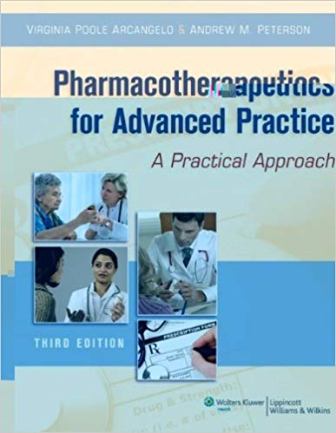
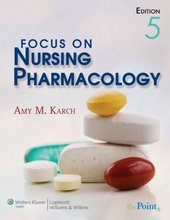

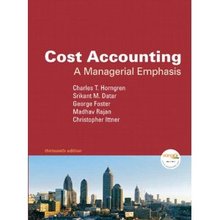
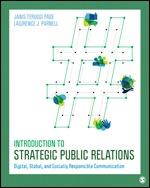


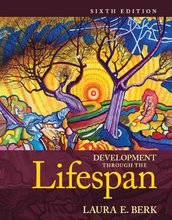

Reviews
There are no reviews yet.